Kidney Stones: When is Surgery Needed? Your Guide to Treatment Options in Ghaziabad
Understanding kidney stones and knowing when to seek expert care for relief.
Understanding Kidney Stones: A Common Urological Challenge
Kidney stones are hard deposits made of minerals and salts that form inside your kidneys. They can be as small as a grain of sand or as large as a pearl. While small stones might pass through your urinary tract without much trouble, larger stones can cause excruciating pain and lead to serious complications if not managed properly. Understanding what kidney stones are, their symptoms, and when medical intervention, including surgery, is necessary is crucial for effective management and preventing long-term kidney damage.
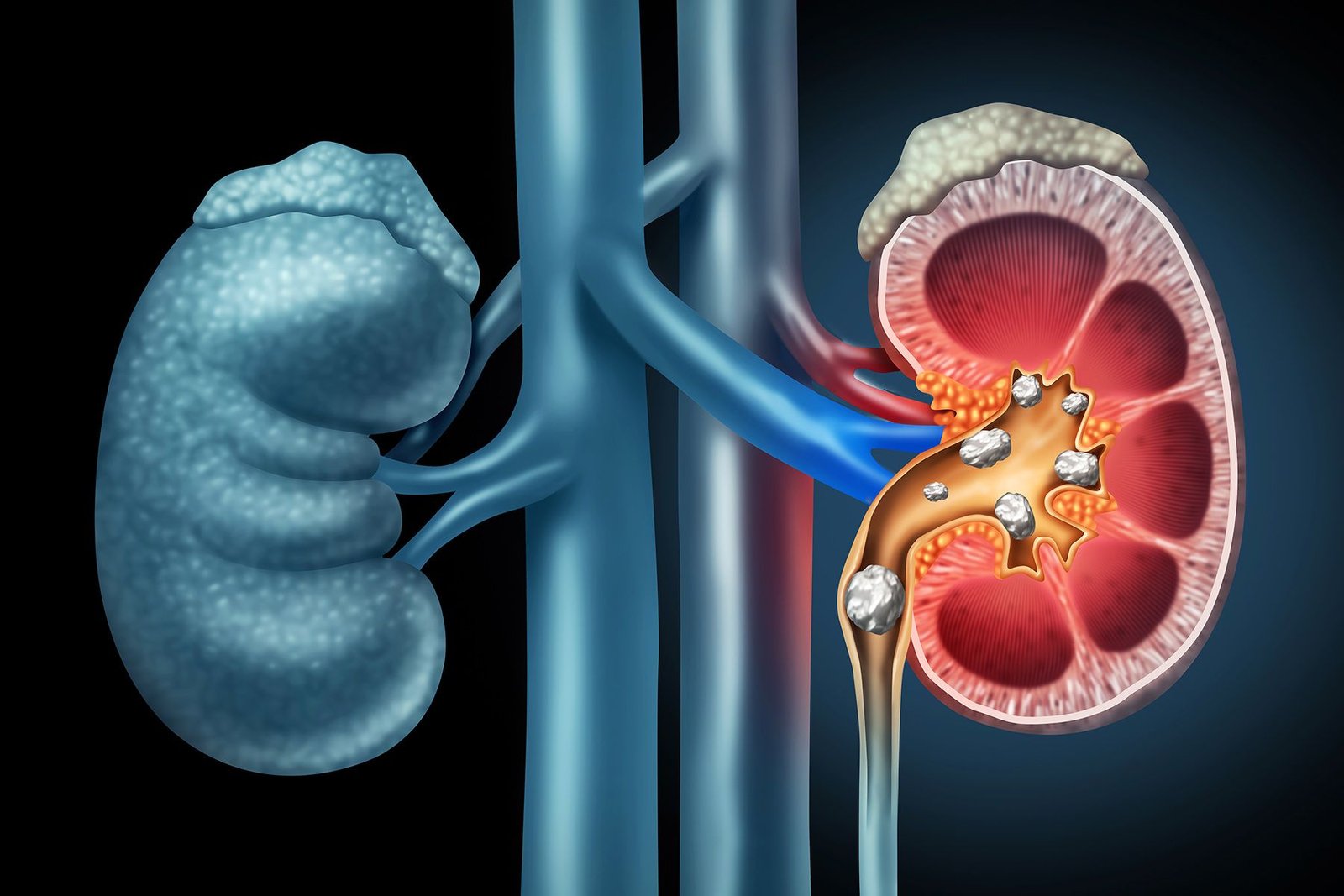
An illustrative diagram showing kidney stones within the urinary system.
Spotting the Signs: Common Symptoms of Kidney Stones
The symptoms of kidney stones can vary depending on their size, location, and whether they are blocking the flow of urine. While some small stones might pass unnoticed, larger stones or those causing obstruction often present with distinct and severe symptoms:
- Severe Pain: Often described as one of the most intense pains imaginable, this typically occurs in the side and back, below the ribs. It can radiate to the lower abdomen and groin. The pain often comes in waves and fluctuates in intensity.
- Painful Urination: You might experience a burning sensation or pain while urinating.
- Blood in Urine (Hematuria): Urine may appear pink, red, or brown due to the presence of blood.
- Cloudy or Foul-Smelling Urine: This could indicate an infection.
- Nausea and Vomiting: Often accompanying severe pain.
- Frequent Urination: An increased urge to urinate.
- Fever and Chills: These symptoms, especially when combined with pain, can signal a serious infection and require immediate medical attention.
If you experience any of these symptoms, especially severe pain or signs of infection, it is important to seek medical evaluation promptly. Early diagnosis and treatment can prevent complications.
When is Kidney Stone Surgery Required? Expert Insights
While many small kidney stones can pass naturally with conservative management (like increased fluid intake and pain medication), there are specific situations where surgical intervention becomes necessary to remove the stone or prevent complications. Your doctor will assess your individual case, considering the stone's size, location, composition, and the severity of your symptoms. Here are the primary indications for kidney stone surgery:
- Stone Size: Stones larger than 5-6 mm are less likely to pass on their own and often require intervention. Very large stones, especially those filling the kidney's collecting system (staghorn calculi), almost always necessitate surgery.
- Persistent Pain: If severe pain persists and cannot be managed effectively with medication, even for smaller stones, surgery may be recommended.
- Urinary Tract Obstruction: When a stone blocks the flow of urine, leading to swelling of the kidney (hydronephrosis), it can impair kidney function and increase the risk of infection. Surgical removal is crucial in such cases.
- Recurrent Urinary Tract Infections (UTIs): Stones can act as a breeding ground for bacteria, leading to frequent and severe UTIs. Removing the stone can resolve these recurrent infections.
- Kidney Damage or Decreased Kidney Function: If the stone is causing or is likely to cause damage to the kidney, or if kidney function is already declining, surgery is often indicated to preserve kidney health.
- Stones Not Passing: If a stone has not passed after a reasonable period (typically 4-6 weeks for smaller stones), or if it's causing ongoing symptoms, surgical removal might be considered.
- Single Kidney Patients: In individuals with only one functioning kidney, even smaller stones or those causing minimal symptoms might warrant earlier intervention to protect the sole kidney.
- Certain Stone Compositions: Some stone types, like struvite stones (often associated with infection), tend to grow rapidly and require prompt removal.
- Uncontrolled Nausea and Vomiting: If these symptoms are severe and persistent, making it difficult to hydrate or manage pain, surgical intervention may be considered.
A thorough evaluation by a urologist, including imaging tests (like CT scans), is essential to determine the best course of action for your specific situation.
Advanced Surgical Options for Kidney Stone Removal
Modern medicine offers several effective and minimally invasive surgical techniques for kidney stone removal. The choice of procedure depends on factors such as stone size, location, and composition, as well as the patient's overall health:
- Ureteroscopy (URS): A thin, flexible telescope (ureteroscope) is passed through the urethra and bladder into the ureter or kidney. A laser or other device is then used to break the stone into smaller pieces, which are removed with a basket, or allowed to pass naturally. This is commonly used for stones in the ureter and smaller kidney stones.
- Retrograde Intrarenal Surgery (RIRS): This advanced endoscopic procedure involves passing a flexible ureteroscope through the urethra, bladder, and ureter into the kidney. A laser fiber is then used to fragment kidney stones directly within the kidney. RIRS is particularly effective for stones located in the kidney that are not suitable for ESWL or for patients who prefer a minimally invasive approach.
- Percutaneous Nephrolithotomy (PCNL): For larger or more complex kidney stones, PCNL is often the preferred method. A small incision is made in the back, and a tube is inserted directly into the kidney to remove the stone fragments. This is a highly effective procedure for large stones.
- Open Surgery: This is rarely performed today due to the advancements in minimally invasive techniques. It involves a larger incision to directly remove the stone and is reserved for very complex cases where other methods are not feasible.
- Extracorporeal Shock Wave Lithotripsy (ESWL): This non-invasive procedure uses high-energy sound waves to break kidney stones into tiny fragments that can then be passed in the urine. It's often used for smaller to medium-sized stones.
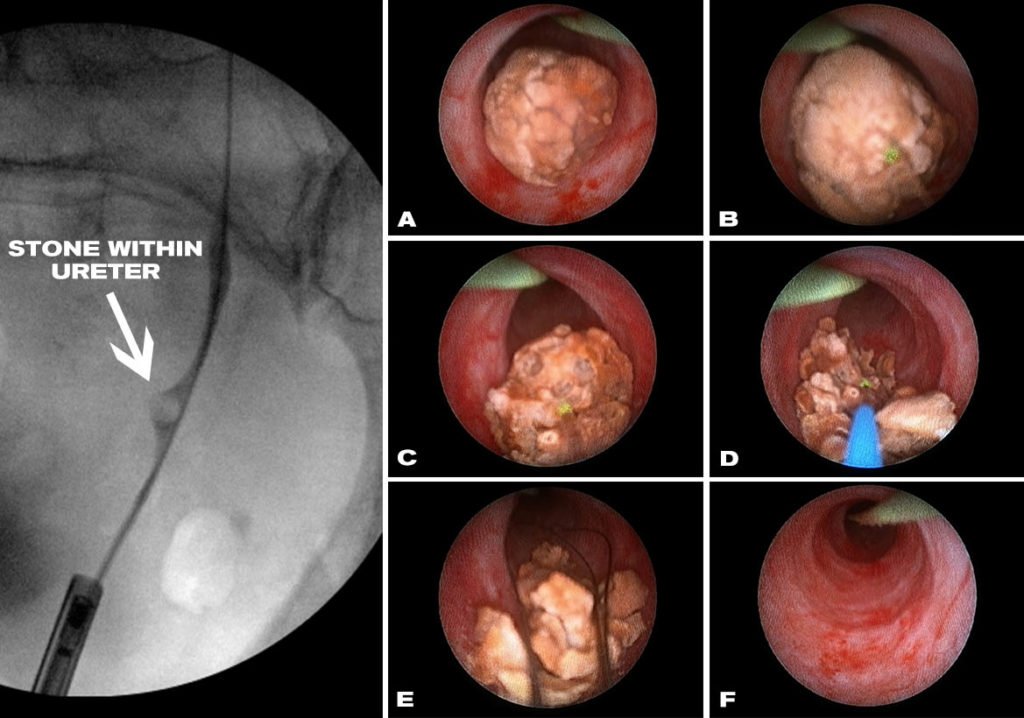
An endoscopic view illustrating the fragmentation of a kidney stone during a procedure like Ureteroscopy or RIRS.
Your urologist will discuss the most appropriate surgical option for you, explaining the benefits and risks involved.
The Risks of Waiting: Complications of Delaying Kidney Stone Surgery
Delaying necessary kidney stone surgery can lead to a range of serious and potentially irreversible complications. While some stones may pass on their own, ignoring the indications for surgery can have severe consequences for your kidney health and overall well-being:
- Kidney Damage: A stone blocking urine flow can cause pressure buildup in the kidney, leading to swelling (hydronephrosis) and progressive, sometimes permanent, damage to kidney tissue. Prolonged obstruction can result in loss of kidney function.
- Kidney Infection (Pyelonephritis): Obstructed urine flow creates a stagnant environment, making the kidney highly susceptible to bacterial infections. These infections can be severe, leading to fever, chills, and even life-threatening sepsis if not treated promptly.
- Kidney Failure: In severe cases, especially if both kidneys are affected or if a single kidney is severely obstructed, delaying treatment can lead to acute or chronic kidney failure, potentially requiring dialysis or a kidney transplant.
- Increased Pain and Discomfort: Persistent or worsening pain, nausea, and vomiting can significantly impact your quality of life and may require repeated emergency visits.
- Stone Growth: Stones can continue to grow larger over time, making them more difficult to treat with less invasive methods and potentially requiring more complex surgical procedures.
- Ureteral Stricture: A stone lodged in the ureter for too long can cause inflammation and scarring, leading to a narrowing (stricture) of the ureter, which can further impede urine flow even after the stone is removed.
These complications underscore the importance of timely medical evaluation and adherence to your doctor's recommendations regarding kidney stone treatment. Early intervention can prevent these severe outcomes and preserve your kidney health.
Your Trusted Partner for Kidney Stone Treatment in Ghaziabad: Shri Tirupati Hospital
When it comes to the complex and often painful issue of kidney stones, choosing the right healthcare partner is paramount. For over 34 years, Shri Tirupati Hospital has been a beacon of trust and excellence in Ghaziabad, serving over 20,000 registered patients with a legacy of successful outcomes in urological care, including advanced kidney stone management.
At Shri Tirupati Hospital, we understand the urgency and discomfort associated with kidney stones. Our dedicated team of highly experienced urologists and surgeons specializes in providing comprehensive and compassionate care, from accurate diagnosis to advanced surgical solutions. We pride ourselves on our high success rates in kidney stone removal, utilizing state-of-the-art technology and modern surgical techniques to ensure effective and safe treatment for our patients.
As a leading multi-specialty hospital in Ghaziabad, we are committed to patient safety and comfort. Our round-the-clock emergency services ensure that you receive prompt attention for acute kidney stone pain or complications. Whether you're searching for a "doctor near me" or the "best hospital in Ghaziabad" for urological concerns, Shri Tirupati Hospital offers a safe surgical experience, backed by years of expertise and a patient-first approach.
Our commitment extends beyond treatment; we focus on preventive advice and post-operative care to help you maintain long-term kidney health. Trust Shri Tirupati Hospital to be your reliable partner in overcoming kidney stone challenges, ensuring your well-being with expert care and a compassionate touch.
Don't Delay Relief: Consult a Specialist for Your Kidney Stones Today!
Kidney stones can be incredibly painful and, if left untreated, lead to serious complications. If you are experiencing symptoms of kidney stones or have been diagnosed with them, timely consultation with a urology specialist is crucial. Don't wait until it's too late!
Shri Tirupati Hospital in Ghaziabad is here to provide you with expert diagnosis, personalized treatment plans, and advanced surgical options for kidney stone removal. Our experienced team is dedicated to helping you find relief and restore your kidney health.
Call Us: 0120-2782103, 9873363434
Email: shritirupati.hospital@yahoo.com
Visit Us: E Block, Kavi Nagar, Ghaziabad

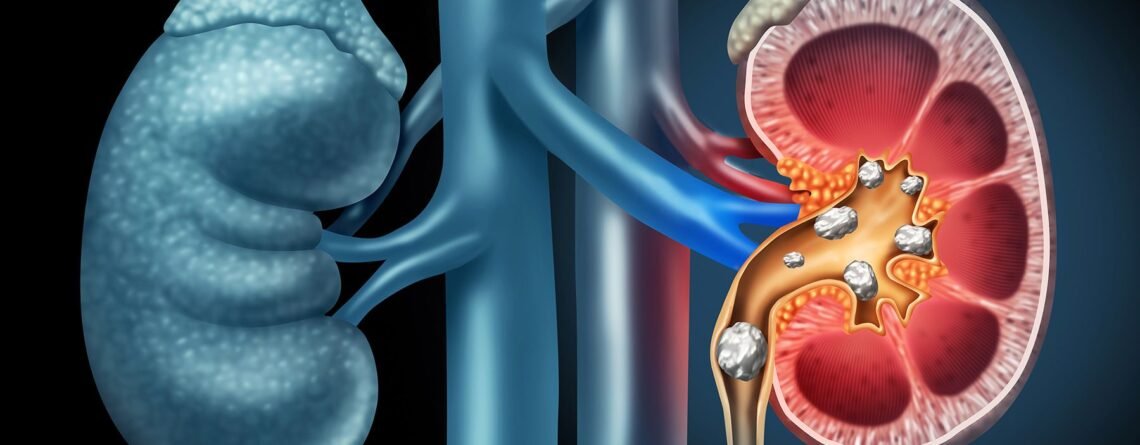
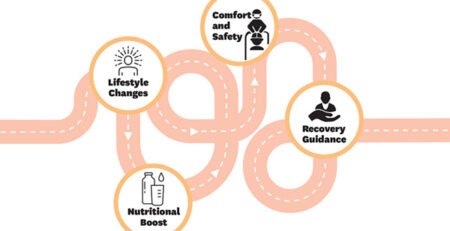
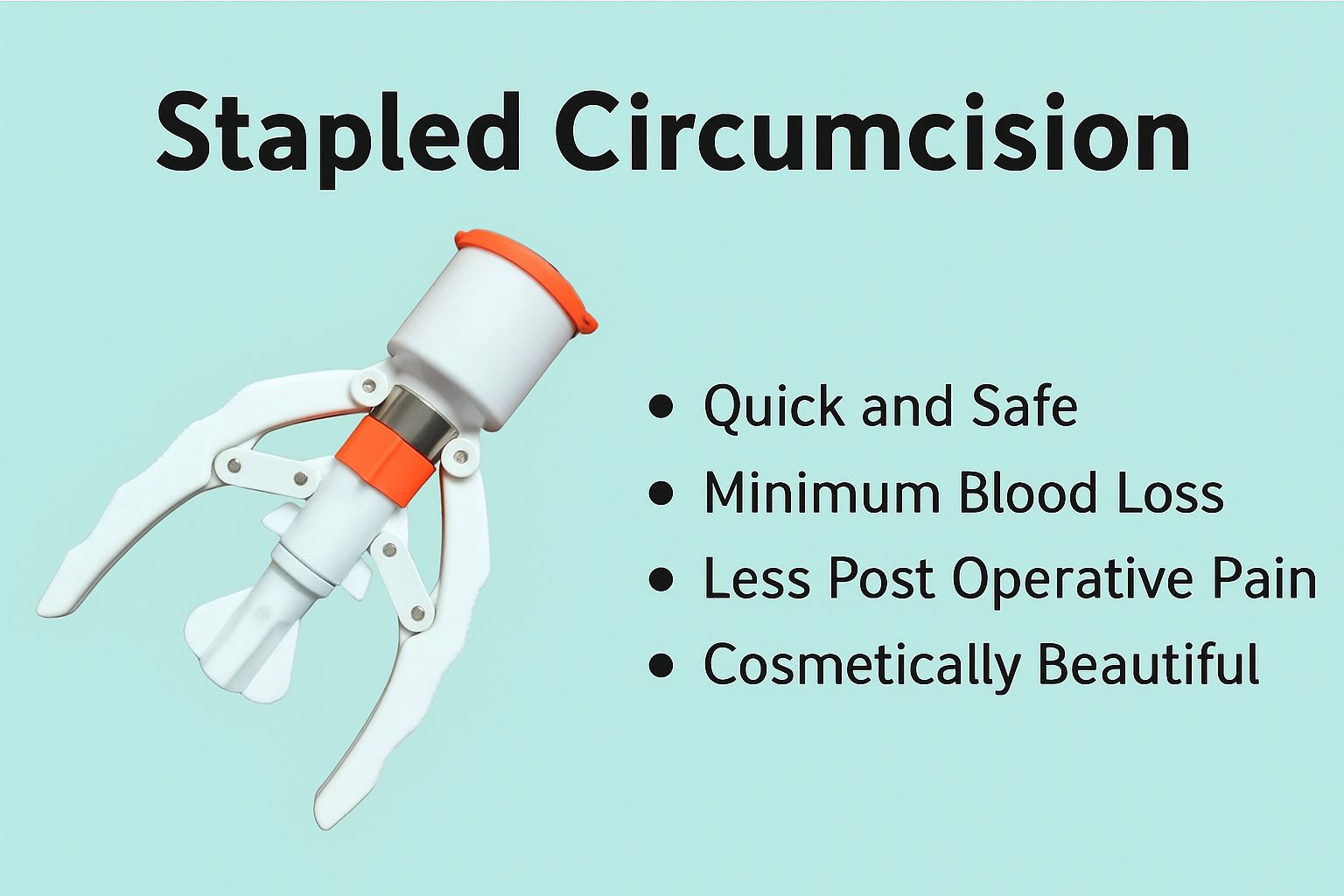


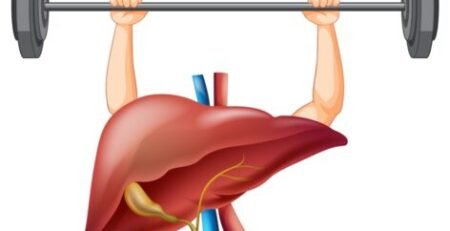
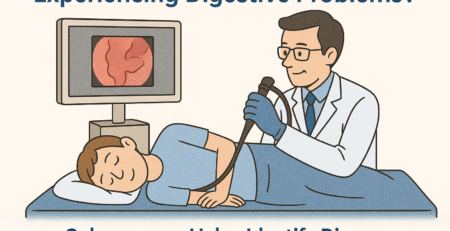




Leave a Reply